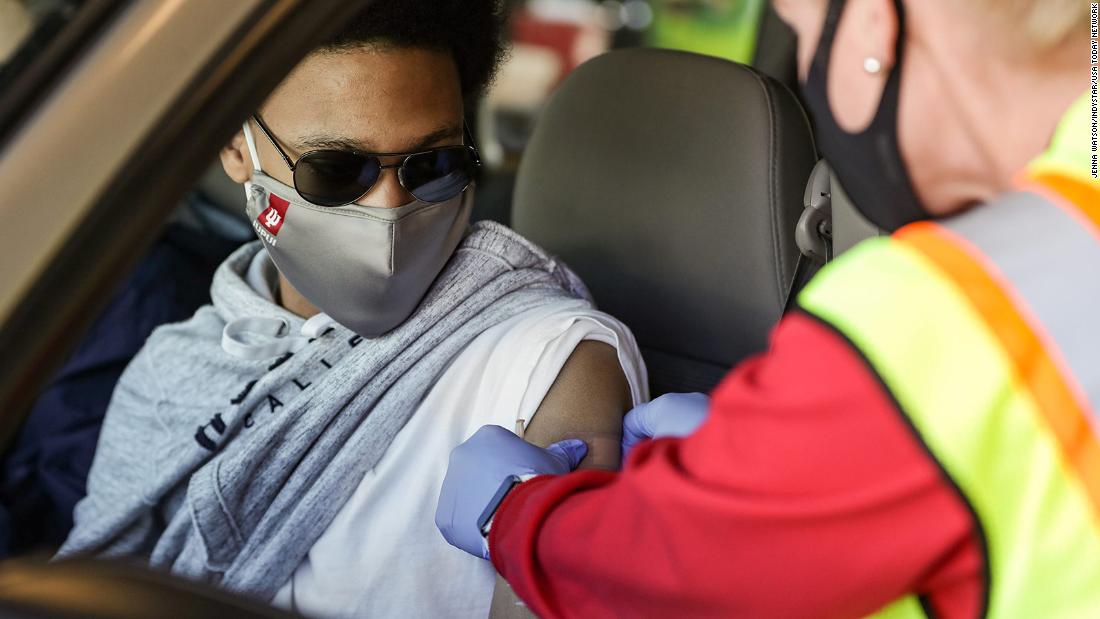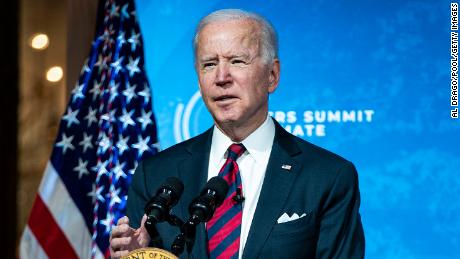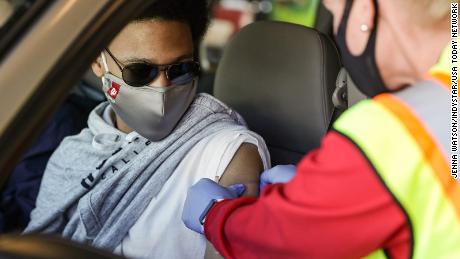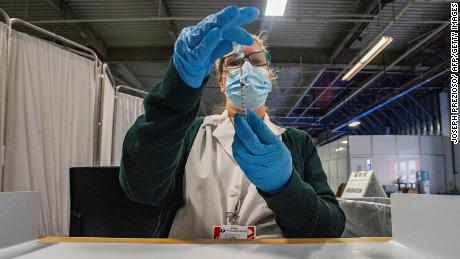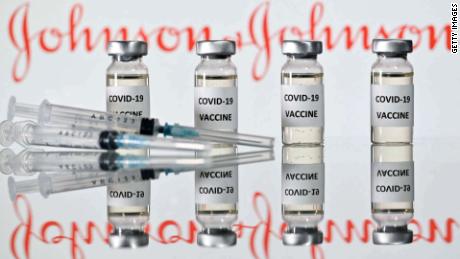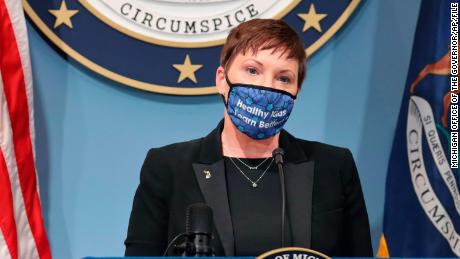Many Americans want to ‘know what’s in it for me’ before getting Covid vaccine, expert says
Providing strong incentives to get a shot could help, some experts say.
“Many Americans want to know, ‘What’s in it for me?’ They don’t want to wait until everyone gets to some elusive herd immunity,” emergency physician and CNN Medical Analyst Dr. Leana Wen told CNN on Monday night.
“I think it’ll be a lot more effective if we say, ‘Once you are fully vaccinated, that’s the end of the road for you. At that point, you’re able to take off your mask outside, you’re able to go about enjoying many aspects of pre-pandemic life,'” she added.
“If the message is, ‘Everyone needs to get vaccinated but your life isn’t going to change at all,’ that’s not a great incentive,” Dr. Richard Besser, former acting director of the Centers for Disease Control and Prevention, told CNN on Monday. “We’re learning more and more that these are highly effective vaccines, we know that being outdoors is so much safer than being indoors.”
‘Hitting the hesitancy wall’
It will likely take between 70% to 85% of the country being immune — either through previous infection or vaccination — to control the virus, according to some experts.
So far, roughly 42.5% of the population has gotten at least one Covid-19 vaccine dose and 28.9% is fully vaccinated, CDC data shows.
A big challenge is ahead.
“I think this is really just hitting the hesitancy wall,” said Dr. Christopher Murray, director of the Institute for Health Metrics and Evaluation at the University of Washington.
Murray said he expects the US will “start to run out of people willing to be vaccinated” within a matter of weeks.
Among American religious groups, White evangelical Protestants are most likely to say they will not get the Covid-19 vaccine, with just over one in four — 26% — saying they won’t get a shot, the survey found.
About 17% of Americans identify as White evangelical Protestant.
Also, Democrats are far more likely than independents or Republicans to be vaccine accepters, the survey found.
About 73% of Democrats said they had received a shot or would get one as soon as possible, while 58% of independents said so.
Among Republicans, the figure fell to 45%, the survey found.
States resume J&J vaccine administration
The CDC searched and found 15 likely cases of a rare blood clotting condition called thrombosis with thrombocytopenia syndrome (TTS), with three deaths among people who got the vaccine.
“There is likely an association but the risk is very low,” Walensky said Friday. “What we are seeing is the overall rate of events was 1.9 cases per million people. In women 18 to 49 years, there was an approximate 7 cases per million. Among women over 50, the rate is 0.9 cases per million. No cases were seen among men.”
While the risk is extremely low, people who suffer persistent, severe headaches or blurred vision, shortness of breath, chest pain, leg swelling, persistent abdominal pain or unusual bruising within three weeks of getting the J&J vaccine should get medical attention quickly, the CDC said in a new posting on its website.
Expert urges precautions for children
Getting children vaccinated will be the last piece of the puzzle in overcoming the pandemic, experts say.
But in the meantime, children will benefit from prevention measures and need to be protected from the virus, Besser, the former acting CDC director, told CNN on Monday.
“I worry when I see states already declaring that the pandemic’s over, that we have victory over the pandemic, given that there are no vaccines for anyone younger than 16,” Besser said.
While children aren’t being hospitalized and dying from the virus at the same rates as adults, “thousands of children have developed a very unusual inflammatory syndrome,” he said.
More than 2,600 children have been diagnosed with MIS-C, a rare but serious condition that’s associated with Covid-19, according to the CDC. At least 33 children with MIS-C have died.
“So it’s very important that we keep the measures in place that public health says (are) essential to reduce transmission, to help protect children until there are vaccines for kids as well,” Besser added.
The agency said that as vaccines are not yet authorized for children of all ages, prevention measures like mask-wearing and physical distancing must continue even after camp employees are vaccinated.
“All people in camp facilities should wear masks at all times,” with few exceptions, the guidance says. Masks should not be worn while eating, drinking or swimming, it notes.
CNN’s Elizabeth Cohen, Jamie Gumbrecht, Jen Christensen, Lauren Mascarenhas, Maggie Fox, Richard Allen Greene, Michael Nedelman, Keri Enriquez and Nadia Kounang contributed to this report.
![]()


